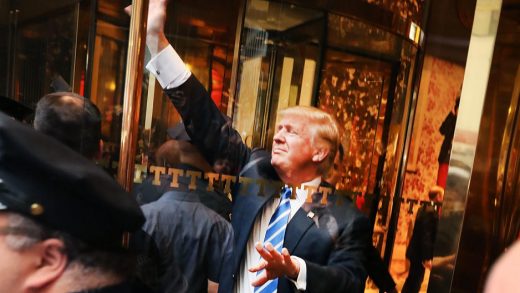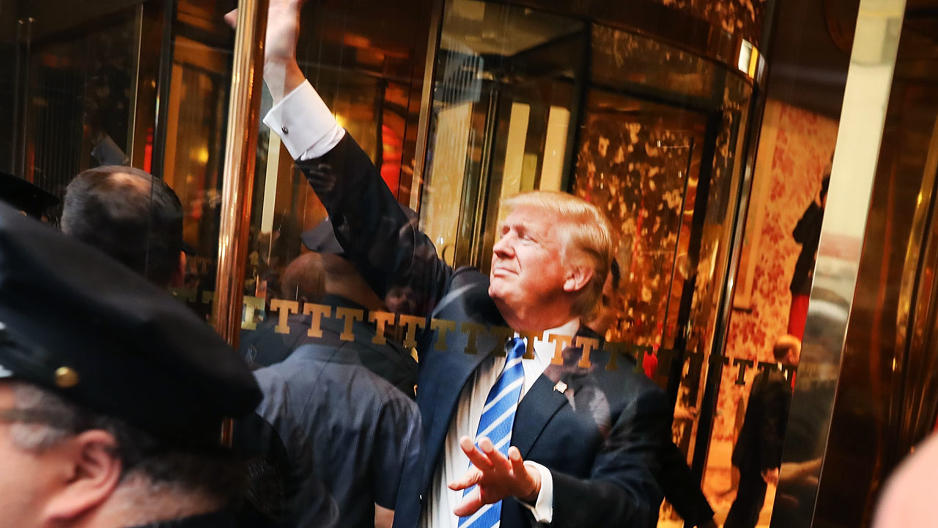The Huge Difference Between Business And Political Strategies
Donald Trump’s entire campaign rested on his lack of political experience. He was the outsider promising to drain the swamp. Now that the businessman is about to become president, how will the skills that propelled him to the White House—those of a showman and dealer—work in the political world?
What does it mean to have a businessman making political decisions? Could future political strategy and negotiations source more from business know-how and less from a diplomacy playbook?
To answer these questions, it helps to look at how business negotiation and strategy are different from political negotiation and strategy.
What Does It Mean To Be A Good Business Person?
Being a wildly successful entrepreneur requires not only growing a solid business, but also giving the entire enterprise an aura of something larger than life. In that sense, people like Trump are very good at what they do. They spend years crafting an image of what their business is, as well as honing their own personal brand. For decades Trump has portrayed himself as a brazen, singular player who goes against the grain to get things done. And this has helped him brand himself as a “true” American entrepreneur.
Decisions are thus made with those interests in mind. As Baruch Fischhoff, a professor at Carnegie Mellon’s Institute for Politics and Strategy, explained to me, business strategies are similar to political ones, but have different ramifications and ways that players intrinsically judge them. “We all make decisions in about the same way,” he says. But depending on the magnitude of the decision, there’s an intrinsic cost-benefit analysis.
Fischhoff talks about two models for how decisions are made, which come from the scholar Herbert Simon. One is called “bounded rationality,” where a leader narrows his or her gaze to solve subsets of a bigger problem. That is, they realize their limitations and focus on small gains to help achieve bigger goals. Conversely, a leader can also take everything into consideration and try to attack from that perspective, and then assess the outcome critically.
In business, it’s easy to understand the risks—the business could lose or gain money or partners, etc. But things aren’t so easy to analyze when it comes to politics. Political decision making, explains Fischhoff, goes from the realm of economics analysis to a new realm where there’s no way to predict overall ramifications. Which is to say, the political actors need to know that there are myriad unknown elements to consider when making any moves. The stakes are higher. Political analyses, he says, are “much harder calculations than the ones entrepreneurs need to make.” When a president makes a seemingly small move, it could alter relationships with a key ally. Understanding the potential risks when making political negotiations is at once impossible but necessary.
This leads to what seems like an obvious assertion, but an important one nonetheless. Negotiation in business is more circumscribed, but in politics it’s far reaching. “In politics, compared to business, there are potentially many more people and issues that can affect how decisions are made and things turn out,” wrote Professor Fischhoff in a follow-up email. “Policies (and people) can be sabotaged or promoted for reasons far removed from seemingly immediate concerns.”
In essence, the scope is what makes the difference. During negotiations, smart actors should consider an “all-other-problems” category when deciding how to begin a negotiation. This is quite simply all the things that could happen. Assessing what that category includes for political situations is beyond behemoth and categorically different from a business strategy.
Can Business Acumen Lead To Political Prowess?
The first step toward transforming from business person to successful political negotiator is to realize your limitations. They “would need to come up to speed on what you can and can’t do with the kinds of analyses [many business people use],” says Fischhoff. More, they should surround themselves with people who are well versed in the areas they are not. Fischhoff explained why a steady political strategy is needed when taking the reins:
One conflict facing someone new in any job is between the desire to make a splash and the need to avoid doing irreversible damage. Given that one can’t think of everything or know what is missing, it is important to have advisers who worry about the decision makers’ long run—and not their own short-term goals.
This extends to both business and politics, of course, but is especially sage when trying to transform a brash entrepreneur into a successful statesman.
When it comes to politics, both decision-making models—be it bounded rationality or approaching the larger issue—work. And they shift how a leader is perceived: Both a business and political leader’s legacy is crafted by how they attack issues. But the unknowns in politics are far more vast than for most other spheres, and how they approach filling those knowledge gaps will dictate their success as political negotiators.
“In politics, there may also be less sorting by expertise and background. People with a hunger for power can succeed in politics without knowing very much or even knowing how to get needed knowledge. They might even disparage others’ knowledge, in deference to their own intuitions,” wrote Fischhoff. “In business, one is more likely to interact with people who are familiar with their domain and who want to know all that they can.”
In short, political leaders need to realize their own cognitive capacity because their actions aren’t siloed within their own industry. Ego and image may make up a good chunk of someone’s business maneuvering, but in politics, the stakes are higher and more stratified. Brash, unscripted hand waves may catch people’s eyes in the moment, but there’s no way to know what will follow. And political negotiations require a more honed and keen eye to be done successfully.
Whether or not the future of politics is drawn from business learnings or something entirely different, it’s important for leaders to be both reflective and critical. They must be ready to learn as the scope of their decisions and negotiations increase. “Even within an institution (firm, university), people are surprised by what they discover when promoted a rung,” Fischhoff wrote. “The greater the shift in domains, the more difficult that task becomes.”
Fast Company , Read Full Story
(40)



